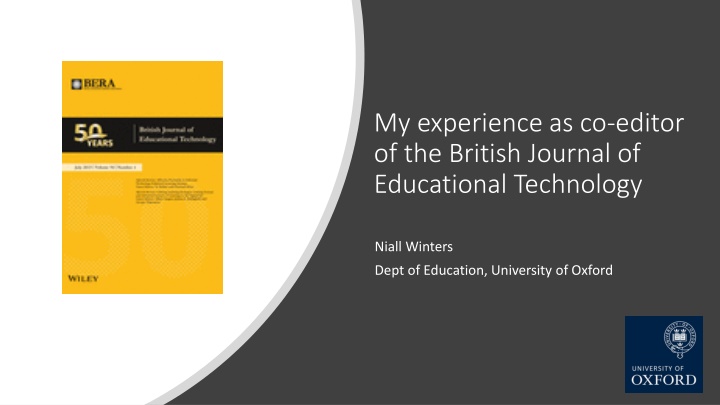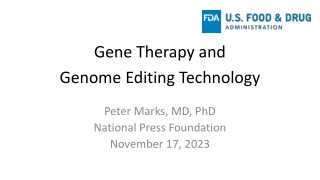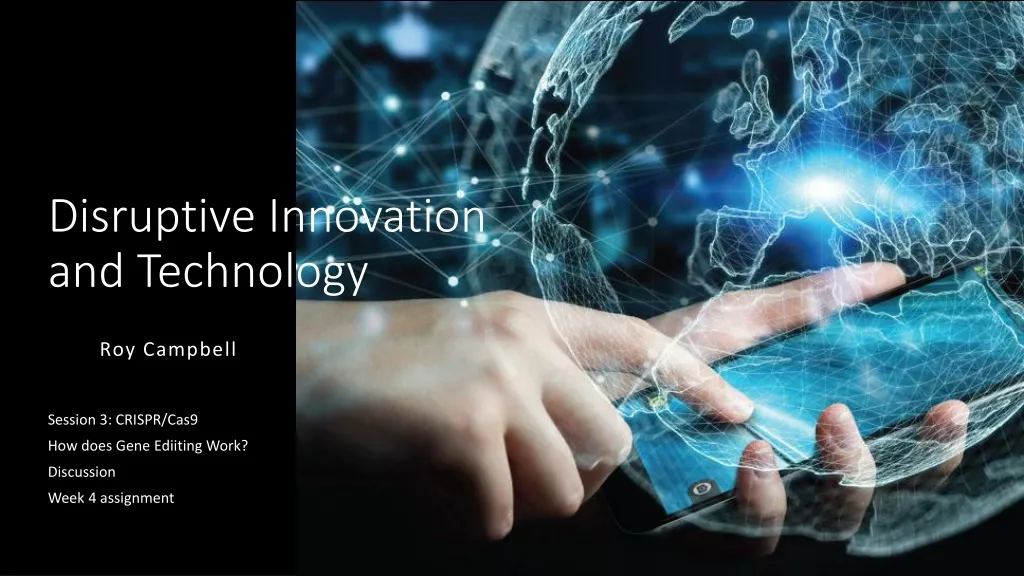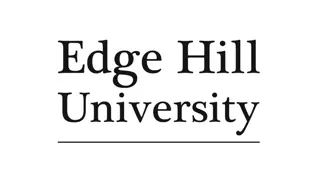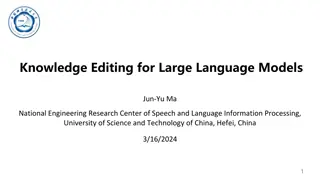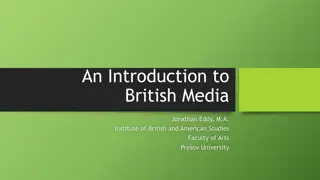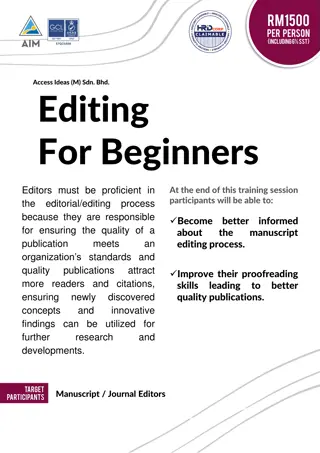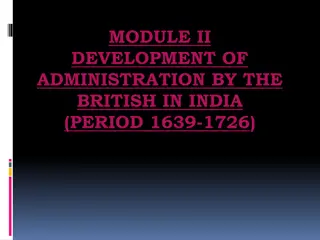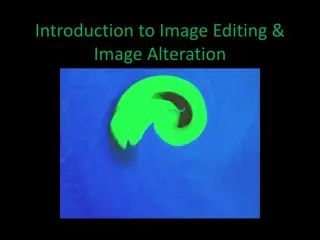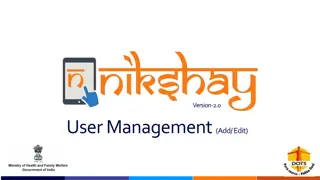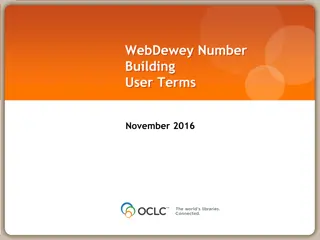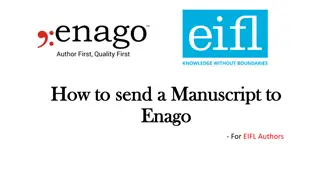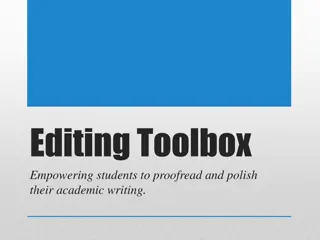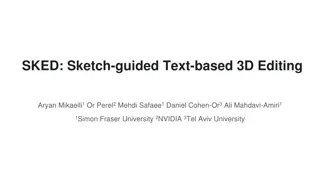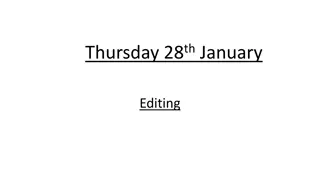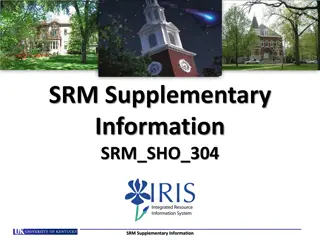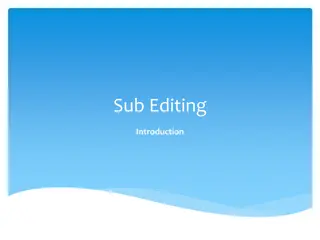Insights from Co-Editing the British Journal of Educational Technology
Co-editor's experience at the British Journal of Educational Technology, highlighting the journal's focus on theoretical perspectives, methodological developments, and empirical research in educational technology. Details on the publication process, criteria for submission, and key themes explored by the journal.
Download Presentation

Please find below an Image/Link to download the presentation.
The content on the website is provided AS IS for your information and personal use only. It may not be sold, licensed, or shared on other websites without obtaining consent from the author.If you encounter any issues during the download, it is possible that the publisher has removed the file from their server.
You are allowed to download the files provided on this website for personal or commercial use, subject to the condition that they are used lawfully. All files are the property of their respective owners.
The content on the website is provided AS IS for your information and personal use only. It may not be sold, licensed, or shared on other websites without obtaining consent from the author.
E N D
Presentation Transcript
My experience as co-editor of the British Journal of Educational Technology Niall Winters Dept of Education, University of Oxford
British Journal of Educational Technology (BJET) BJET publishes theoretical perspectives, methodological developments and high quality empirical research that demonstrate whether and how educational technology leads to improvements in formal and non-formal education at all levels, from early years through to higher, technical and vocational education, professional development and corporate training. 6,000 words 69% of papers submitted are sent to review (of these 70% are then rejected) Overall acceptance rate 13% Median time to initial decision 19 days Median time for decision on revised manuscripts 17 days @BJETEds Median time to acceptance 6-7 months Impact Factor 2.729
BJET: How to get published? BJET: How to get published? Papers are selected for publication based on the rigour of the research and its potential to make a substantive and original contribution to the field, with explicit reference to international significance. Empirical papers are expected to report on significant research studies. These may report qualitative, quantitative or mixed methods studies and need to be of a high scholarly quality. Empirical papers need to include: a clear methodology (including information on sampling and analytical process); substantive evidence of research outputs, outcomes and impacts (e.g. of the interventions trialled, applied, or adopted). Theoretical, methodological and review articles should be critical, present a novel perspective and make an original contribution. BJET does not publish purely descriptive papers or those that simply present learners , teachers and other users opinions on methods, materials or tech.
So what? Is the research innovative or at least original? What is the significanceandcontribution to existing knowledge? Theory? Methodology? Empirical data?
Themes Internationalisation: BJET has always sought the best work from across the world, with a strong focus on the application of learning technologies to practice across different cultural contexts, enriched by developing understandings of how learning theories and pedagogical practices are influenced by national systems of education. Inclusiveness: BJET has a strong focus on inclusive technologies. This covers technologies for those with disabilities, and includes increasing understandings of their practice with learning technologies, and how inclusion can be extended not only from use but also to design. The theme of inclusion has a strong commitment to non-traditional learners, in particular exploring the role of technology in addressing social exclusion and marginalisation both nationally and internationally, including the unintended structural inequalities of technology resulting from power differences and gender inequity. Inclusion will also be interpreted broadly to include studies that aim to improve equity of participation of all learners in educational activities through technology use. Innovation: BJET has always maintained a strong focus on technologies and their use for learning across formal and informal contexts, including exploration of the relationship between pedagogical practice and technological innovation. Innovation will extend to engagement with emerging theories and a wider range of theory in general, in exploring and analysing uses of technology and the factors that influence its adoption and scalability.
What we are looking for Since researchers, policymakers and practitioners need to know how the possibilities of educational technology can be maximised and problems of adoption and sustainability minimised, BJET particularly welcomes such submissions as: Multi-site, multi-perspective studies by teams of researchers testing promising approaches and fostering further developments; Longitudinal studies that evidence the benefits of educational technology innovations to systems and institutions; Reports on educational technology initiatives which met with problems and/or failed to achieve their aims, and the lessons to be learned from these; Research studies that confirm, build upon or contradict previous BJET contributions. Importantly, reports of experimental work should be analytical, not merely descriptive: reviews of developing fields should be critical, not merely informative; theoretical overviews should contain some original contribution or novel perspective. We are looking for articles that "take us beyond what we already know" A description of an established methodology in a familiar environment needs to have some novel aspect or be spectacularly written, if it is to gain the approval of the reviewers. Compose practitioner notes carefully; the language needs to be accessible to educators who are not necessarily familiar with any of the research literature, and messages need to clearly inform educational practice. For the full guidelines on how to write for BJET please see the Author Guidelines
Is the focus technical or linked to pedagogy? Has the innovation been tested with real users? Are there convincing learning outcomes? Are there explicit implications for practice? Policy?
Technology has no agency or impact! Many reports of interventions initiated by how can I use wikis / tablets/ individual response systems / interactive whiteboards / the VLE rather than educational need How it is used, by and with whom, how often, for what purpose, under what conditions, with what support What is the role of the teacher? Has pedagogy-focused professional development been offered? What cultural shift in teacher and learner roles is necessary?
Do the authors take a critical and self-critical stance? Is the account analytical and underpinned by theory, or purely descriptive? Do the authorscritiquethe literature and present abalancedaccount? Or does the review gloss over known issues with edtech initiatives? How do the theoretical assumptions and explanations of case compare with alternative explanations? Are links made in the discussion/conclusions back to the conceptual framework? Are the findings critically interpreted in relation to existing literature?
Is there evident bias towards a techno-utopian view? Do the RQs convey genuine inquiry? Or do they assume that edtech is a Good Thing? What is the theory of change? Were there any potentialsources of bias? What measures were taken to counter them? Eg. Were any counter-examples sought when collecting and analysing data? Does reporting seem selective? Are the analyses systematic and explicit? Is the account reflective and evaluative?
Was the design rigorous? Was there any kind of control in a technology intervention design? Are there threats to validity or reliability? Does inadequate control of extraneous factors threaten validity of theoretical inferences from data? Are limitations acknowledged? Couldreactivity have played a role? Did novelty value of shiny new tools increase motivation? How robust are the claims: How adequately is the argument supported by the evidence provided?
Is the research generalisable / replicable / scalable / sustainable? Does the sampling strategy permit empirical generalisation to a larger population? Who is the audience? Is the work relevant and current? Are there clear conclusions that generalise beyond specific case/context? Do they apply in other institutions? Is the work applicable / of interest in other countries? Is the focus overtly parochial?
Practitioner notes Structured practitioner notes What is already known about this topic ----- ----- ----- What this paper adds ----- ----- ----- Implications for practice and/or policy ----- ----- -----
Top Tips Seek out Editors at conferences, Meet the Editor sessions etc Pay careful attention to aims & scope and author guidelines Compose your title to be as informative (not clever or amusing) as possible, yet succinct (not long-winded) Don t forget your abstract the most read part of any published article! Make sure it contains an overview of the focus, the sample (include country, age group, numbers in empirical reports), the methods and the outcomes Understand that Editors and reviewers are not the enemy! They take time to ensure that their feedback is as informative as possible. Accept feedback as a learning experience. Be patient the process takes several months. Persistence pays don t be put off if you are not successful first time.
Top tips Make each of the 6,000 words count! Provide a synopsis of past research and identify the gap in knowledge that your paper aims to address. Explain clearly and concisely the design of any technology and learning experience. Use images as appropriate - screenshots are helpful but do not overuse. Consider using external links to more details reports or providing further information in an appendix. Similarly report your research methods, ensuring that the rigour of data collection and analysis are presented. Don t forget to outline your sampling strategy. Only include relevant tables and graphs and make sure that these are referred to in the text. Figures can also be very useful. The results of qualitative data analysis often require more words, so select quotes carefully and consider using diagrams to provide an overview of complex phenomena. Take the time and words to critically discuss your findings in relation to the existing research and your research aims and questions. Draw out the implications for practice and/or future research. Make sure that your conclusion does more than repeat your abstract or introduction. Explain to your reader why your findings are significant and what your contribution is.
Preparing an article reporting your thesis work Preparing an article reporting your thesis work Focus your article carefully; be selective about which elements of the work to include and who will be most interested in them; a superficial summary of an entire thesis is not appropriate and will be rejected! If there is one main idea/set of findings then concentrate on honing that into article format. Do not try and cover too many areas/issues Considering preparing more than one article if there is enough material of significant value to the field Journal articles do not need so much justification of methods as a thesis; writing needs to be very succinct, less detailed, less discursive, more formal Take the time to read several recently published articles in BJET to learn what makes an article successful (this may include articles which are not in your area of research but use similar methods, for example)
What else do we do? Special Issues BJET Fellowship BJET Best EdTech Paper, BERA Conference Danyang Zhang, a PhD student at Cambridge, for her presentation "Mobile-based English dictionaries (MBDs) in Chinese EFL learners' incidental English vocabulary learning: Exploring effectiveness learners' use and attitude (2018) BJET Early Careers Toolkit and Support (incl. critical friend) BJET App More details: https://onlinelibrary.wiley.com/journal/14678535
Thanks! @BJETEds @nwin niall.winters@education.ox.ac.uk
